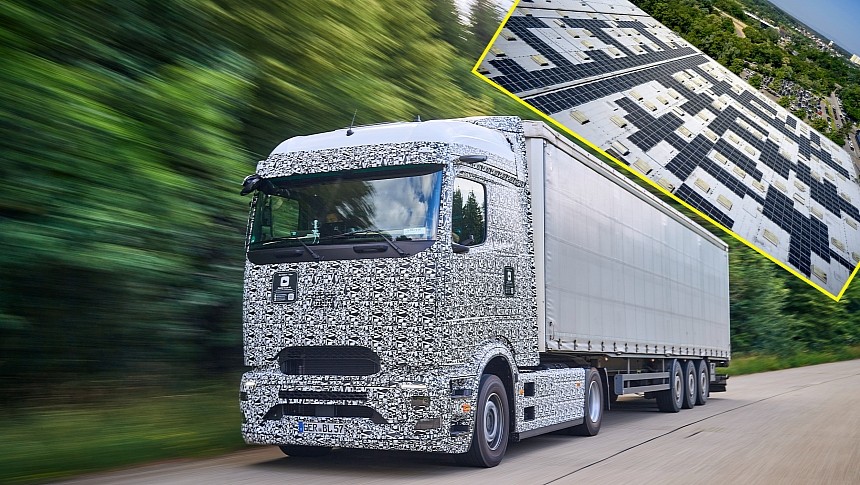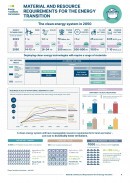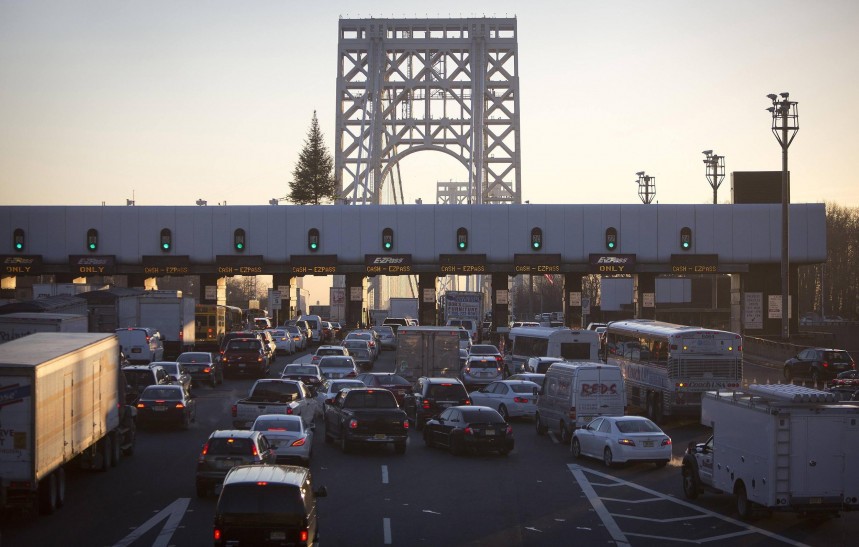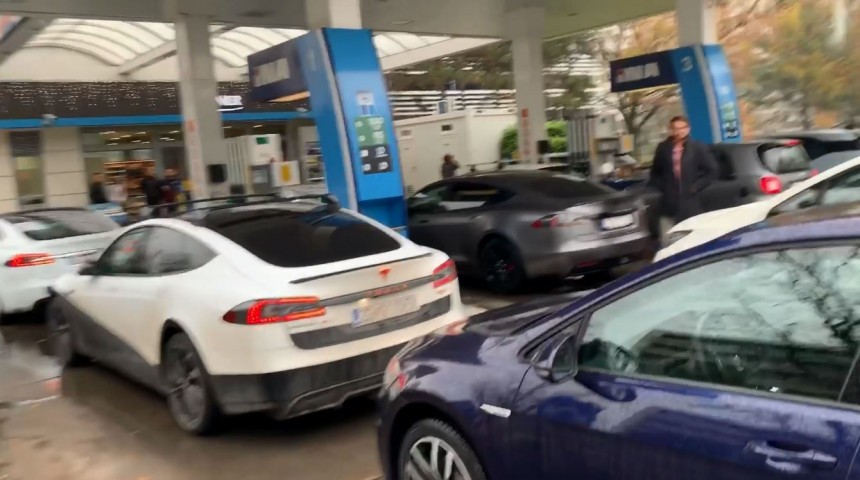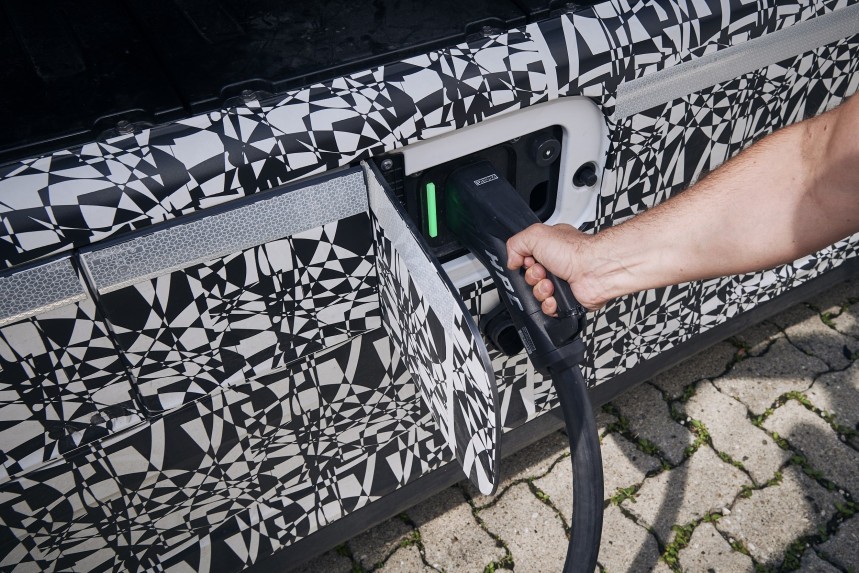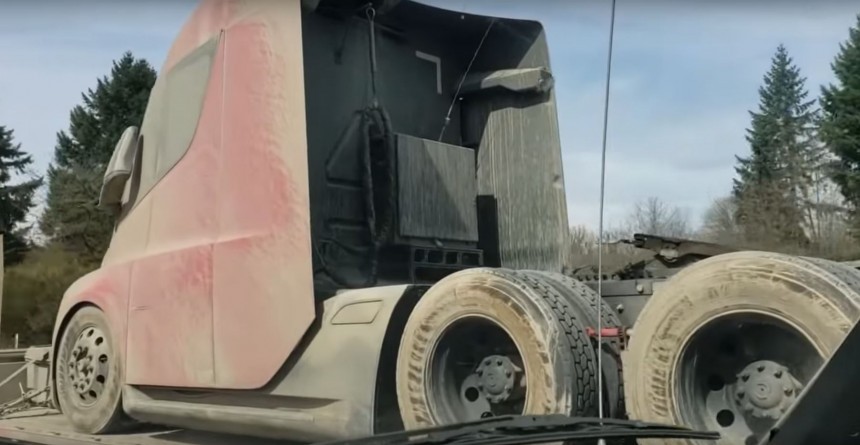If the international push toward a decarbonized society is something we truly want to achieve, then moving away from fossil fuel use can't be reserved only for passenger vehicles. Fortunately, zero-tailpipe emission progress in the ground freight sector is happening. Important industry names plan to work together to achieve the best battery-powered solution possible. Here's the gist of it.
No matter one's stance on global warming, man-made pollution, and fossil fuel-powered vehicles, it's undeniable that burning oil derivatives for personal mobility and freight harms the climate. It's enough to look at what the United States Environmental Protection Agency (EPA) or the European Environment Agency (EEA) have to say regarding road transport emissions, and anyone can realize that we have a problem on our hands that needs fixing.
The EPA underlines that the transportation sector is responsible for approximately 29% of the total US greenhouse gas emissions, which refer to carbon dioxide (CO2), methane (CH4), nitrous oxide (N2O), and hydrofluorocarbons (HFCs).
Globally, however, the percentage reduces to 14%. Electricity and heat production plus agriculture and forestry take up nearly half of the polluter's pie chart, per the EPA.
On the other hand, the EEA says that in its 27 member countries, transportation activities create approximately 25% of the bloc's total greenhouse gas emissions.
But making EVs is not a clean activity either. Mining for critical minerals puts a strain on the environment, and multiple studies have shown that gas-powered BMW 3 Series, for example, is cleaner than a Tesla Model 3 when they leave the factory. They achieve pollution parity after around 25,000 miles of travel. From that point forward (which may wildly differ depending on the units being compared), the 3 Series turns into a net pollutant. At the same time, the Model 3 adds little to its owner's carbon footprint, especially if it is charged at a place where renewable energy is available.
Then, there's the debate surrounding the acquisition of a new car. It might be better to hold onto your existing gas- or diesel-hungry car, take good care of it, and use it safely for as long as possible than to go and finance, lease, or outright buy a new one.
However, something that's not being talked about is the fact that keeping our economies dependent on fossil fuels is a whole lot worse than mining for some materials needed in batteries and motors. An analysis revealed that renewable technologies and products require far, far fewer materials than fossil fuels.
Their findings also underline that keeping the fossil fuel-powered economy alive would translate into 535 times more mining "than a clean energy economy would require in 2040."
For example, a vehicle like the Toyota Prius would typically require a refinery to use cobalt to turn oil into derivatives like gas and platinum for its catalytic converter.
Another source says that all the materials needed to finalize the transition to a renewable energy-powered global economy by 2050 would translate into less than one year's mining for everything connected to fossil fuels.
Accelera by Cummins, Daimler Truck, and Paccar announced they would form a new company to start manufacturing lithium-iron-phosphate (LFP) batteries in the US. EVE Energy will join them as a partner to help design these new energy storage units. It'll own 10% of the joint venture, while the others get 30% each.
These entities will invest $3 billion tops into a 21-GWh battery plant. They want to first put LFP energy storage units into commercial trucks, then focus on other types of batteries. Given that EVE Energy is a Chinese-based corporation, they may play around with sodium-ion or solid-state batteries.
Until then, LFP batteries are a great choice because they boast a more stable chemistry and don't require pricey raw metals like nickel and cobalt.
Despite this being an excellent announcement for decarbonizing road transport and lowering the production carbon footprint of all-electric commercial trucks, we must note that this isn't happening in the US solely because these brands suddenly decided they would like to compete with Tesla or care deeply about the environment. Truck makers are for-profit companies, after all.
The venture will benefit from an incentive of $35 per kWh for all the high-voltage batteries made in the US. Basically, the federal government covers half of the energy storage unit's cost. That's not a bad thing, considering the latest developments coming from OPEC and its friends. The plant will also create jobs that retrained workers from the auto industry might fill.
Accelera by Cummins produces battery systems, fuel cells, ePowertrain systems, and electrolyzers. It's the next stage of development for Cummins, a brand that's well-known for mainly designing and manufacturing engines. But it also makes generators and other specific parts for vehicles.
Daimler Truck owns brands like Mercedes-Benz Trucks, Freightliner, Western Star, FUSO, BharatBenz and RIZON.
Paccar has Peterbilt, DAF, and Kenworth in its portfolio.
These companies manufacture some of the most well-known and best-selling trucks in America. Their commitment to moving onto a battery-electric architecture proves that the way forward is replacing gas or diesel with electricity, something that Tesla's Semi is currently trying to prove with PepsiCo's help.
It's a brand-new world in the making, and we're here to witness it all. Let's hope it will work out.
The EPA underlines that the transportation sector is responsible for approximately 29% of the total US greenhouse gas emissions, which refer to carbon dioxide (CO2), methane (CH4), nitrous oxide (N2O), and hydrofluorocarbons (HFCs).
Globally, however, the percentage reduces to 14%. Electricity and heat production plus agriculture and forestry take up nearly half of the polluter's pie chart, per the EPA.
On the other hand, the EEA says that in its 27 member countries, transportation activities create approximately 25% of the bloc's total greenhouse gas emissions.
The numbers bring forward real answers
But these figures will gradually come down. Passenger vehicles, light-duty trucks, and light commercial vehicles (also called vans) are slowly yet surely going on the all-electric route. That was made obvious at IAA Mobility 2023, where legacy automakers pretended to be EV makers by using most of the revenue from the sale of internal combustion engine-powered automobiles to launch battery-electric models. It will take a while before most new vehicle sales will comprise pure electric cars, but the path forward is clear.But making EVs is not a clean activity either. Mining for critical minerals puts a strain on the environment, and multiple studies have shown that gas-powered BMW 3 Series, for example, is cleaner than a Tesla Model 3 when they leave the factory. They achieve pollution parity after around 25,000 miles of travel. From that point forward (which may wildly differ depending on the units being compared), the 3 Series turns into a net pollutant. At the same time, the Model 3 adds little to its owner's carbon footprint, especially if it is charged at a place where renewable energy is available.
Then, there's the debate surrounding the acquisition of a new car. It might be better to hold onto your existing gas- or diesel-hungry car, take good care of it, and use it safely for as long as possible than to go and finance, lease, or outright buy a new one.
However, something that's not being talked about is the fact that keeping our economies dependent on fossil fuels is a whole lot worse than mining for some materials needed in batteries and motors. An analysis revealed that renewable technologies and products require far, far fewer materials than fossil fuels.
For example, a vehicle like the Toyota Prius would typically require a refinery to use cobalt to turn oil into derivatives like gas and platinum for its catalytic converter.
Another source says that all the materials needed to finalize the transition to a renewable energy-powered global economy by 2050 would translate into less than one year's mining for everything connected to fossil fuels.
The next step forward for reducing transport greenhouse gas emissions
Now that automakers are switching to battery-electric vehicles, with some still believing that hydrogen-powered cars (also called fuel-cell cars), it's time for the big boys to step up.Accelera by Cummins, Daimler Truck, and Paccar announced they would form a new company to start manufacturing lithium-iron-phosphate (LFP) batteries in the US. EVE Energy will join them as a partner to help design these new energy storage units. It'll own 10% of the joint venture, while the others get 30% each.
Until then, LFP batteries are a great choice because they boast a more stable chemistry and don't require pricey raw metals like nickel and cobalt.
Despite this being an excellent announcement for decarbonizing road transport and lowering the production carbon footprint of all-electric commercial trucks, we must note that this isn't happening in the US solely because these brands suddenly decided they would like to compete with Tesla or care deeply about the environment. Truck makers are for-profit companies, after all.
The venture will benefit from an incentive of $35 per kWh for all the high-voltage batteries made in the US. Basically, the federal government covers half of the energy storage unit's cost. That's not a bad thing, considering the latest developments coming from OPEC and its friends. The plant will also create jobs that retrained workers from the auto industry might fill.
Daimler Truck owns brands like Mercedes-Benz Trucks, Freightliner, Western Star, FUSO, BharatBenz and RIZON.
Paccar has Peterbilt, DAF, and Kenworth in its portfolio.
These companies manufacture some of the most well-known and best-selling trucks in America. Their commitment to moving onto a battery-electric architecture proves that the way forward is replacing gas or diesel with electricity, something that Tesla's Semi is currently trying to prove with PepsiCo's help.
It's a brand-new world in the making, and we're here to witness it all. Let's hope it will work out.
